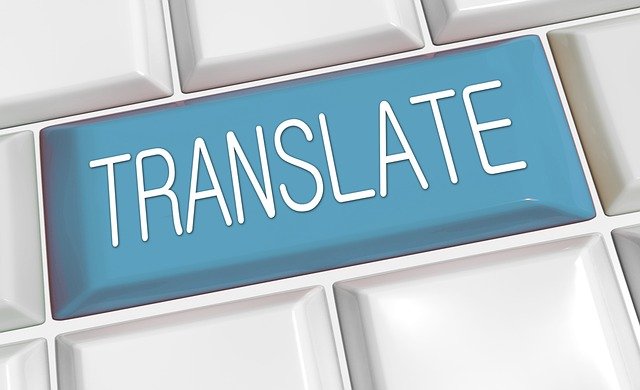If you are a business owner, the chances are that at some point you probably thought about expanding internationally and targeting larger, foreign markets. This today, due to the developments in technology as well as globalisation, although still difficult, is easiest it has ever been. What just 15 or 20 years ago was seemingly impossible, is a reality today.
According to a recent research, over 25% of European consumers now purchase goods online from shops based abroad regularly. Yet, more than 90% of those respondents said that they feel more inclined to make a purchase if the information about the product is provided in their native language.
As you can see, the potential growth your company can achieve by approaching foreign markets via your website is astonishing. When translating your website however, it is important to remember a few important factors which may, directly or indirectly, influence your website translation campaign – from choosing the best website translation services provider to regularly updating your website.
Translate and localise
A simple word-for-word translation of your website is great. It can bring a number of benefits, from upholding a professional image of your company to allowing your visitors to read product and service information in their native language, which consequently increases sales.
Localisation however, takes it even a step further. A localisation service not only translates the content of your website word-for-word, but also takes into the account and adjusts a number of outside factors which may influence the accuracy and suitability of a translation, such as symbols, colours, time/measurement formats, currency etc. By doing this, you guarantee your visitors a great user-experience, which goes far beyond a simple content translation.
Don’t forget the detail
When translating a website, it is often easy to strictly focus on the main content and forget about the details, such as image file names, titles, descriptions etc. It is especially significant when your website aims to be competitive in the search engines. By translating not only what the visitor can see, but also what’s visible to search spiders, you ensure that your website is optimised and therefore naturally easier found by the customers.
Work with a translation agency
There are many different ways of approaching a website translation. From free online tools to asking a friend or a family member who happens to speak your target language to translate your content. Nevertheless, for business purposes, it is always recommended to work with a professional translation agency, which specialises in business and marketing translations. Such agency is able not only to translate your pages accurately and within a set deadline, but is usually also able to localise your content specifically for the audience and consumers you are targeting.
Keep it current
Website translation is an ongoing project. One of the key elements to ensuring that your translation strategy is successful is ensuring that any new additions to your site are also being professionally translated. Whether it’s news, new product or category, your visitors would want to read about it in their native language and so it is key to keep a strong relation with the translation agency for future projects.
Be picky
Before starting your project, it is important to remember that there are bad translation agencies and there are great translation agencies. By choosing an agency which specialises in marketing translations, you ensure that they will approach your content with the upmost professionalism and industry knowledge. Additionally, make sure that the translation agency you want to work with only uses human translators. Working with automated tools, although faster, does not guarantee accuracy and is definitely not worth the risk in the long run.
As you can see, there are many different factors which you must consider when translating your website. From the type of service, you require to the translation agency you choose to work with – each aspect is extremely important and can influence whether your campaign is a success.




